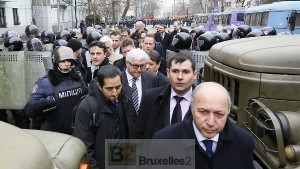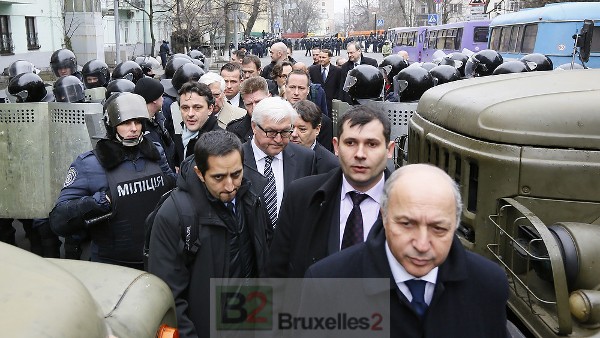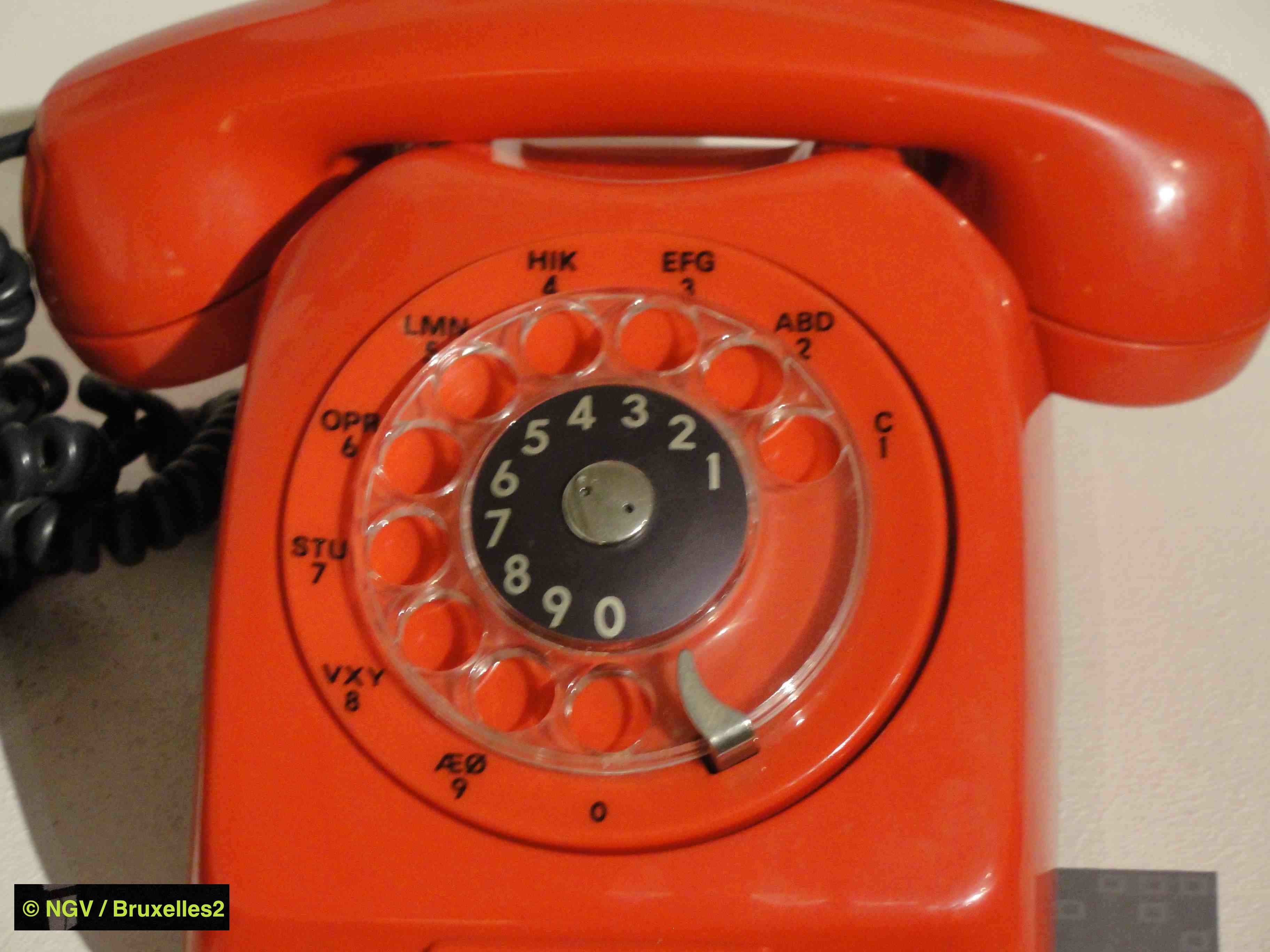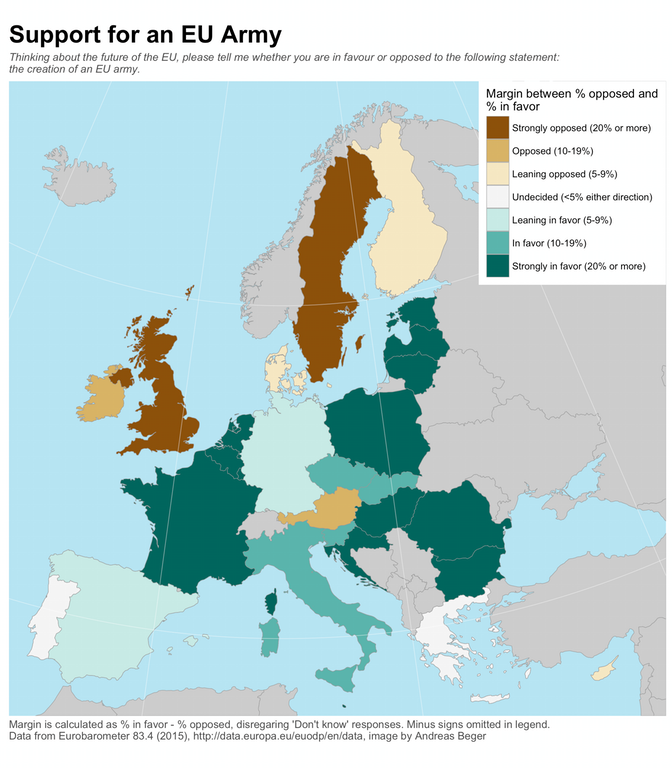Ukraine: Europe in mediation or in levitation?

(BRUXELLES2) L’exemple de l’Ukraine, aujourd’hui, de la Géorgie, hier, montre que l’Union européenne a un “certain” pouvoir de médiation. Un pouvoir qui peut être utile et servir lors de crises mais reste largement encore sous-estimé, par les Européens eux-mêmes.
Negotiation
Ce qui se passe actuellement en Ukraine est illustratif du pouvoir politique de l’Europe. Même si le voyage à Kiev revêt parfois une ambition personnelle, le pouvoir d’intercession de l’Union européenne ne doit pas être minoré. Les déplacements successifs de la Haute représentante de l’UE, des différents eurodéputés, des ministres des différents pays européens sont importants. Il faut avoir été sur la place Maïdan, comme il fallait aller, hier, sur la place Tahrir ou, il y a quelques années, à Varsovie. C’est symbolique. Certes ! Mais le symbole est important en politique. C’est aussi une marque de solidarité importante. Si ce geste n’existait pas, il y aurait une signification très claire d’abandon.
Parler d’une voix ou de plusieurs voix
La démarche des trois ministres des Affaires étrangères, Laurent Fabius, Frank-Walter Steinmeier, Radek Sikorski est tout aussi importante. Le Français, l’Allemand, le Polonais, ensemble, pour servir d’intermédiaires, de médiateurs dans une “révolte” ukrainienne est un acte qui, en lui seul, a une importance politique. Car on sait que sur l’Ukraine (comme sur la Russie), Paris, Berlin, Varsovie ne sont pas nécessairement sur la même longueur d’onde et ne le seront pas dans un futur proche, tant les histoires sont différentes. Mais c’est justement cette “unité” qui a de la force aujourd’hui. Plutôt qu’une voix unique, l’Europe a besoin de voix (au pluriel) qui s’expriment différemment mais savent se retrouver et parler le même langage au bon moment. C’est en cela que l’Europe est forte, forte de ses différences, mais unie face aux crises.
A trio and a diplomatic service
Ce trio là a sans doute plus de poids que n’importe quel super-ministre des Affaires étrangères. Il ne faut, pour autant, pas minorer le travail de la Haute représentante de l’UE, Catherine Ashton, et du service diplomatique européen (SEAE). Chacun a son rôle — le trio de ministres, la Haute représentante, le SEAE — et remplit une pièce de la diplomatique européenne. Quelques critiques s’élèvent par ci, par là. Elles ne sont pas justifiées aujourd’hui (*). Le travail du SEAE est important, vital, car il assure la permanence européenne, le travail de fond nécessaire, la diplomatie au quotidien. L’ambassadeur de l’UE en Ukraine n’est pas n’importe qui : Jan Tombinski est un “bon” comme on le dit dans les couloirs diplomatiques. Les deux actions européennes – celle du SEAE et celle des pays membres — sont aujourd’hui nécessaires pour faire face à un pouvoir qui n’a aucune l’intention de céder la place ou même.
L’Europe en médiation
La mission d’interposition menée en Ukraine n’est pas la seule. Le dialogue mené sous les auspices de l’Union européenne entre Pristina et Belgrade le montre également : la pacification à l’européenne peut fonctionner. Au Mali et en République centrafricaine, également, le pouvoir d’influence européen existe et pousser à un dialogue politique que les responsables, n’ont peut-être pas envie de mener, à une structuration des Etats, à un réveil démocratique. Si dans certains cas — sur la Géorgie et l’Abkhazie ou l’Ossétie, sur la Moldavie et la Transnistrie —, le travail de médiation n’a pas pu rencontré tout le succès escompté, il a eu au moins un mérite, pacifier la discussion et stabiliser la zone. C’est cela le réel “soft power”. Et il n’y a pas à en rougir. Ceux qui critiquent une “Europe inactive” se trompent donc de chemin.
A body of negotiators
Pour autant on ne peut pas se satisfaire de certains résultats. L’Europe devrait poursuivre dans cette voie et développer un corps de négociateurs, éventuellement en puisant dans le corps des “anciens”, anciens ministres des Affaires étrangères ou anciens Premier ministres, qui peuvent se révéler d’excellents négociateurs, à plein temps. Un corps qui devra s’appuyer sur un service de “médiation”, un peu comme le proposaient les Finlandais et les Suédois (lire : Sweden and Finland plead for a European Institute for Peace). Ce ne peut être au Haut représentant d’être sur tous les fronts. Les ministres des Etats membres non plus, ils ont d’autres engagements, le départ de Kiev vers la Chine de Laurent Fabius le montre. Au besoin, cet engagement devrait être poussé au plus haut niveau européen, des Chefs d’Etat et de gouvernement. La négociation en Ukraine (et avec la Russie) le prouve aujourd’hui, dans certains cas, la diplomatie du “téléphone” doit se produire au plus haut niveau.
(Nicolas Gros-Verheyde)
NB : Ce qui est, en revanche, discutable, et discuté, est l’attitude européenne de s’engager dans un processus d’accord d’association, sans envisager toutes les hypothèses, y compris le pire. Penser que l’accord d’association était “neutre”, que le Oui ukrainien était solide et que Moscou ne réagirait pas est d’une naïveté confondante…
Read also:



… read with these few days of delay, and here we are in a completely different world.
this magnificent agreement on the initiative of the three ministers of February 21 was flouted barely the dried ink and today the EU looks like nothing and our three ministers nothing at all.
to cry…